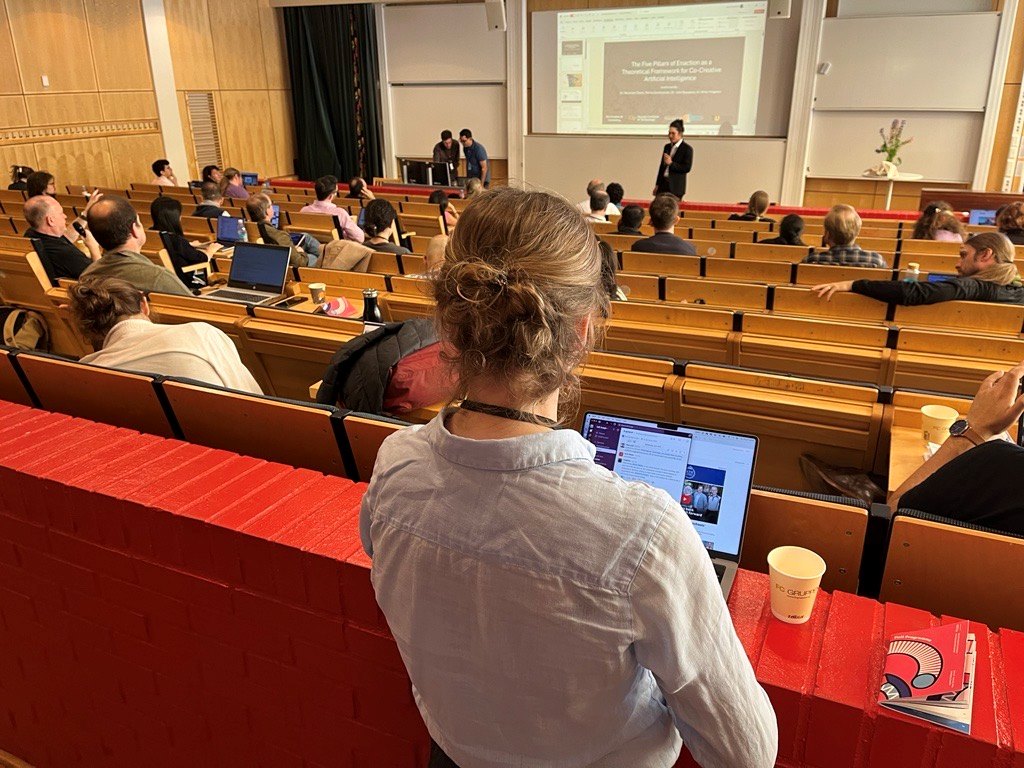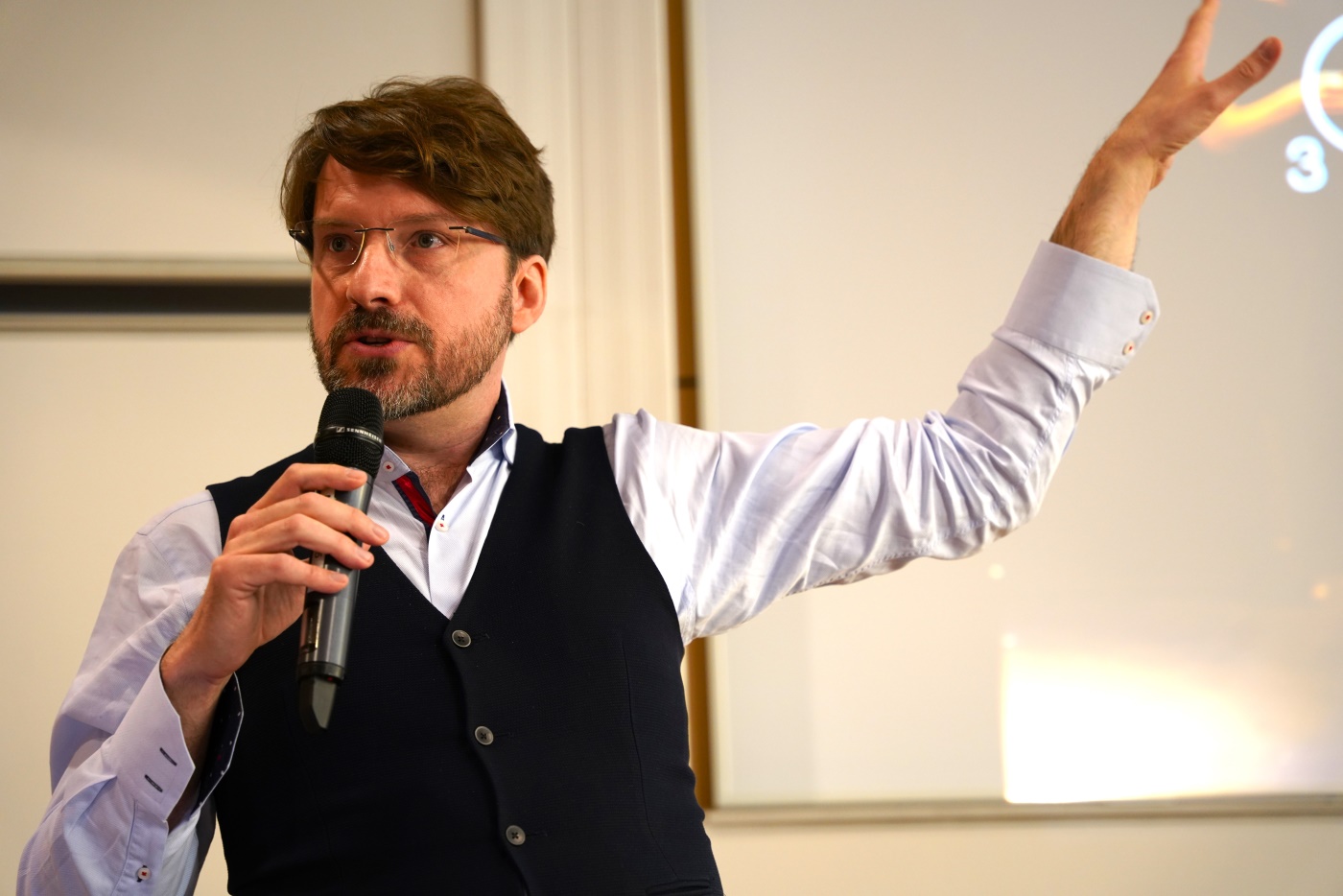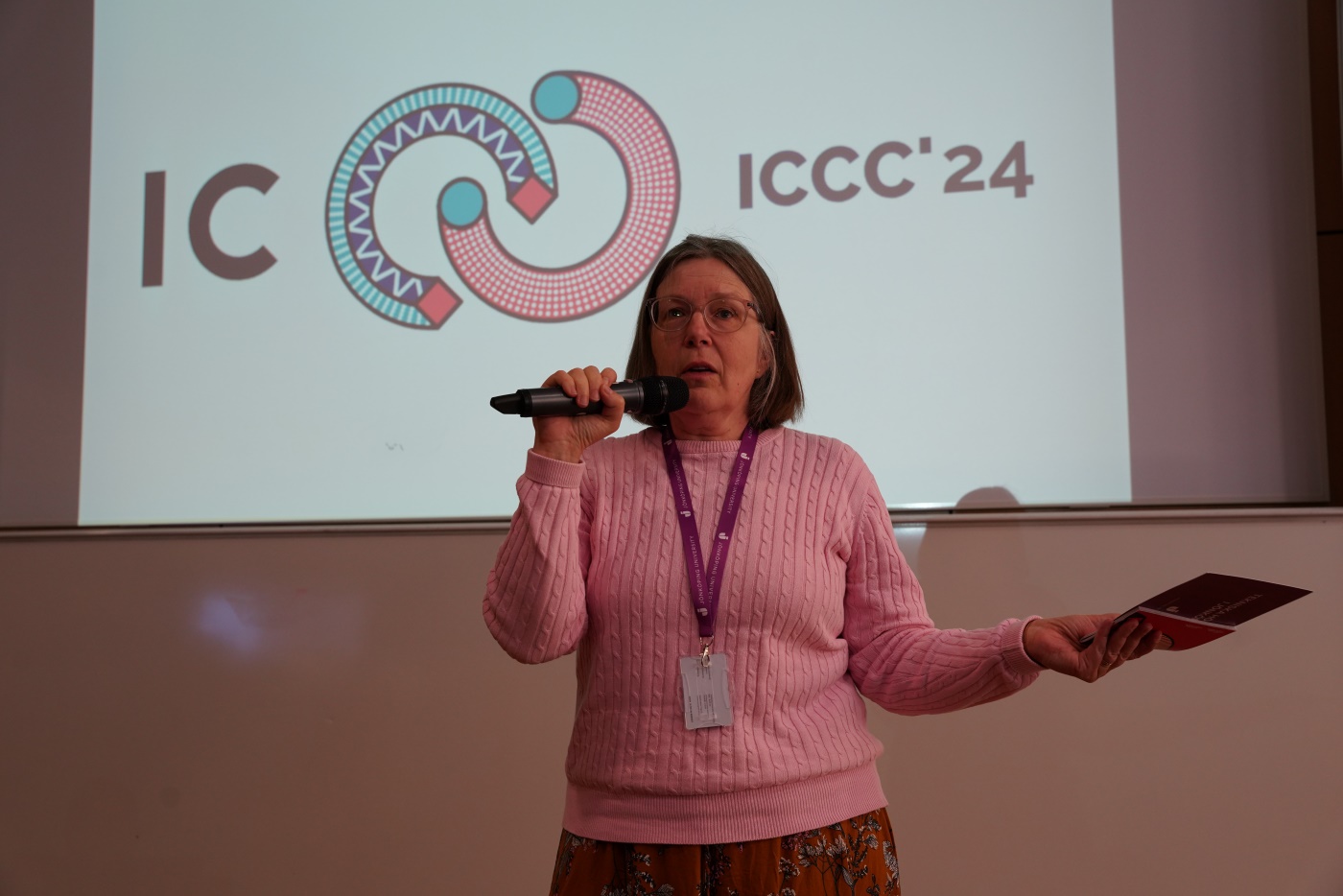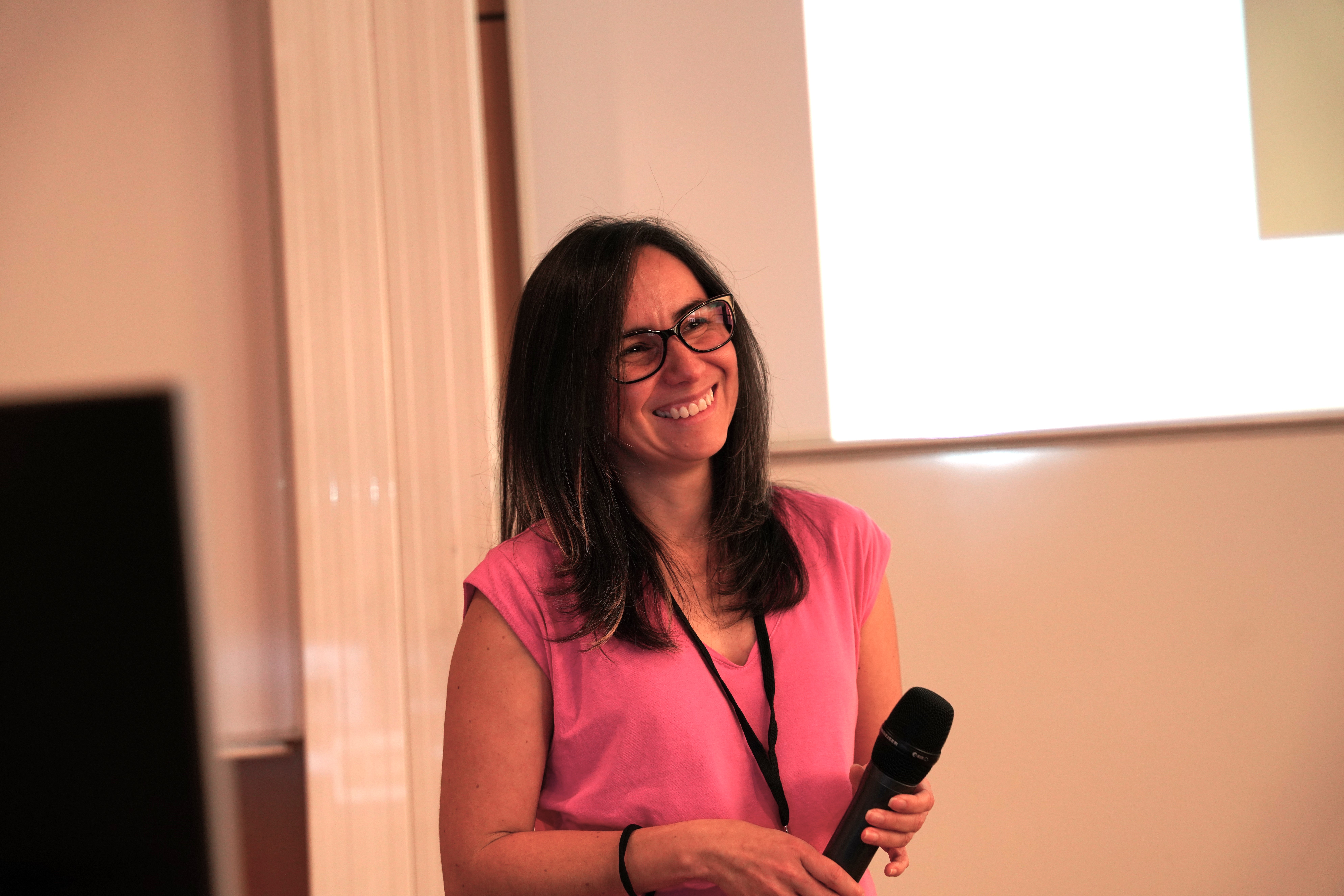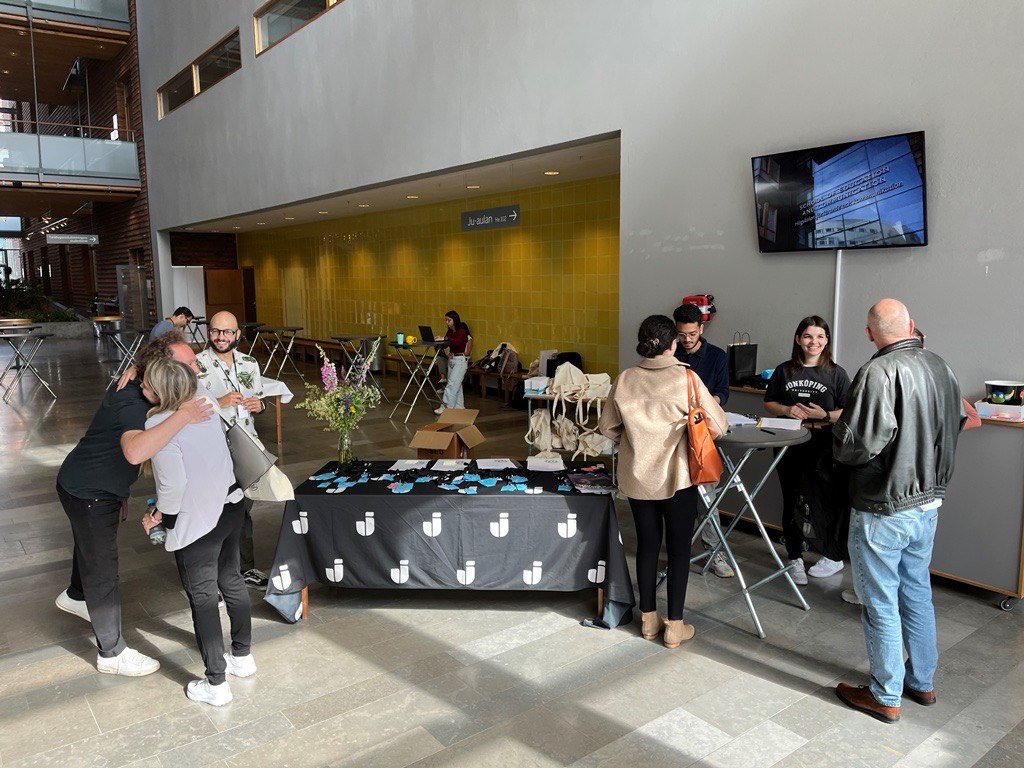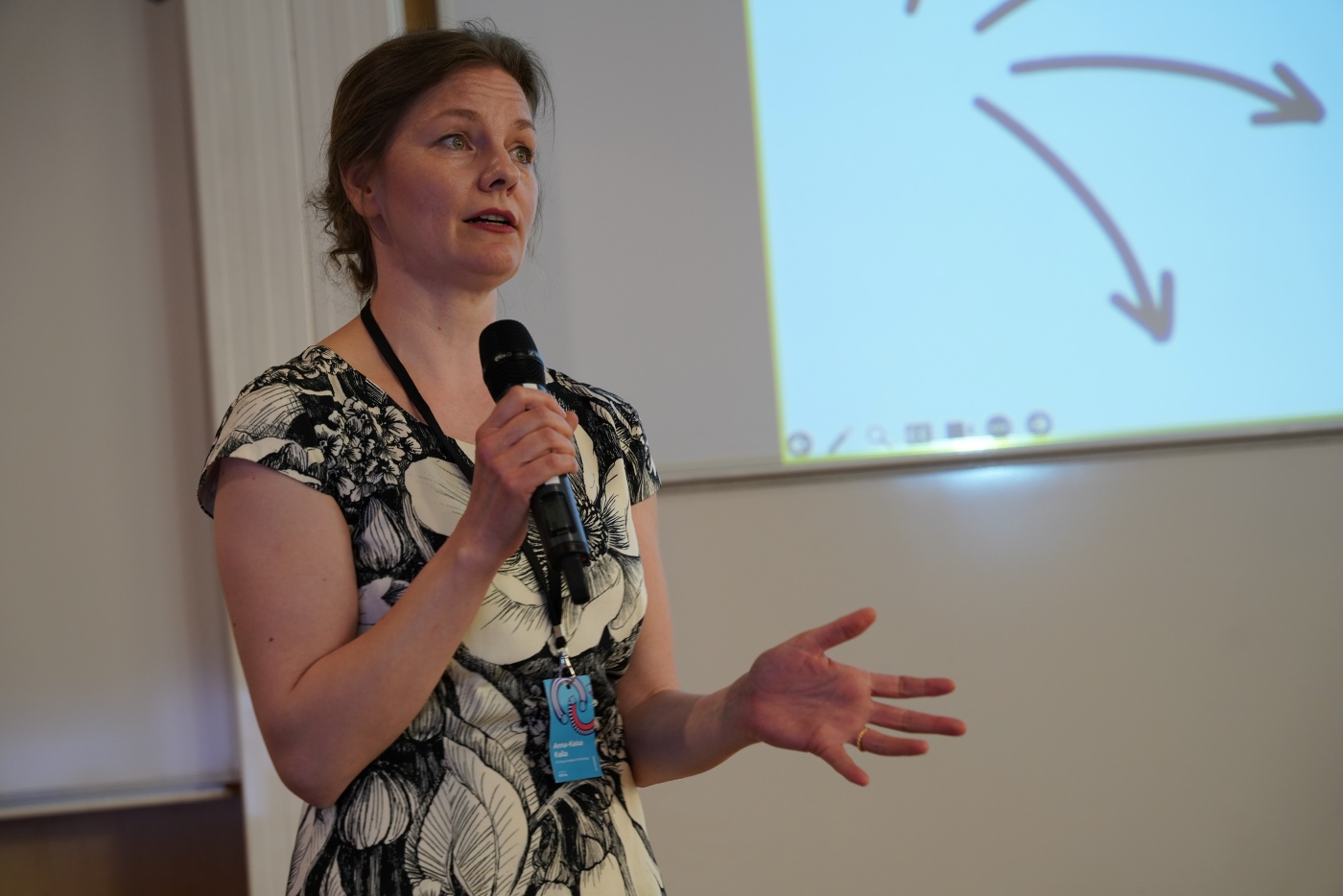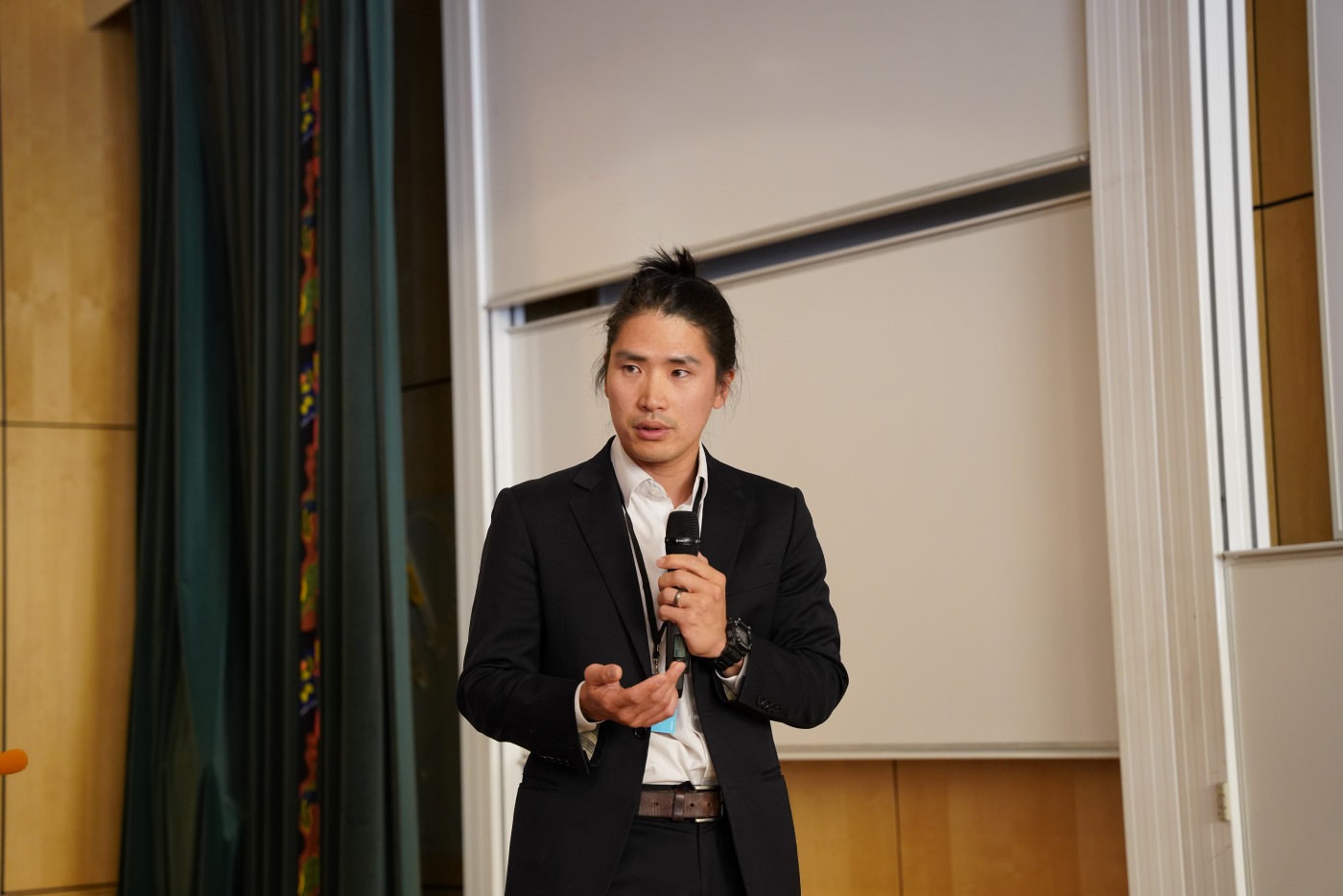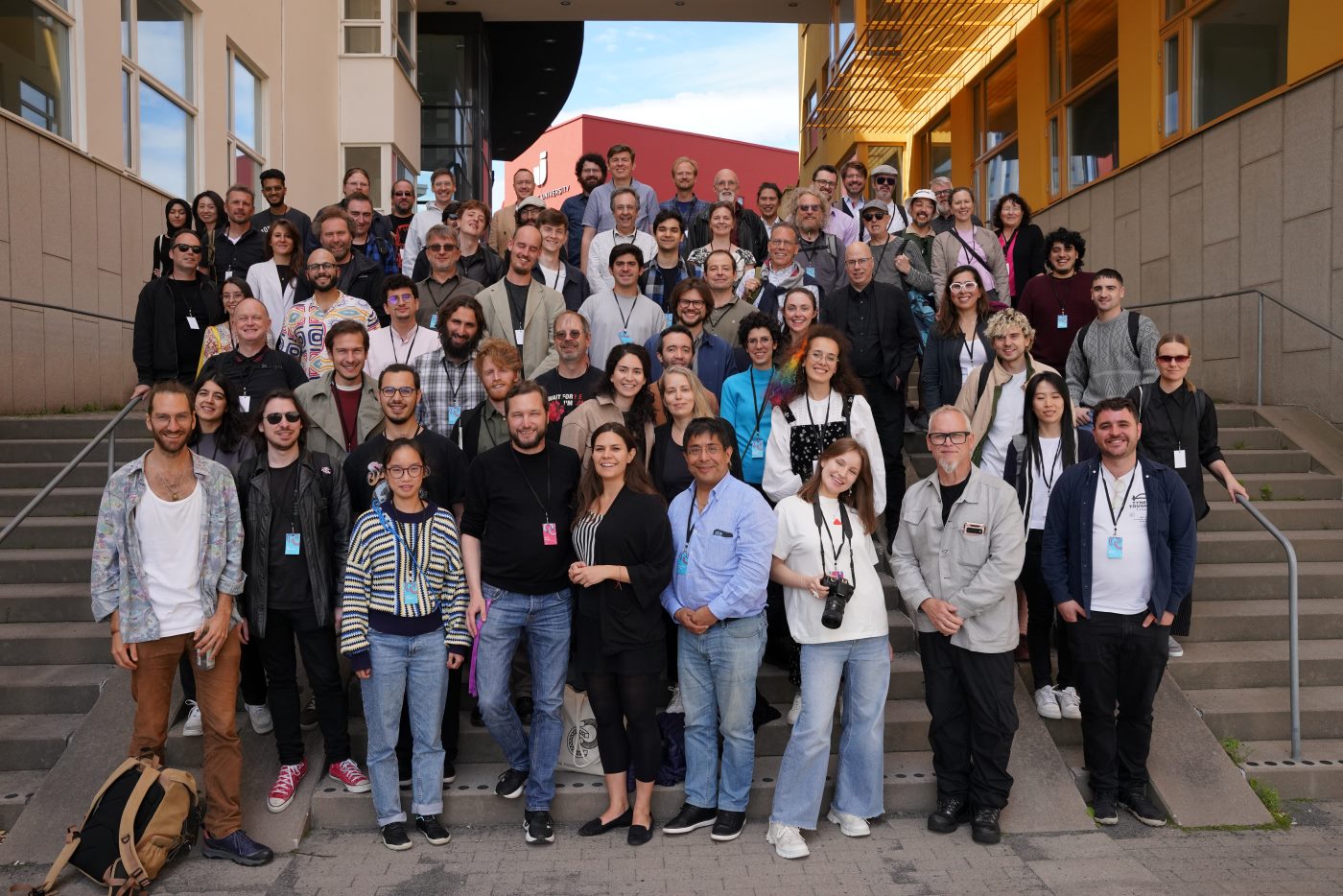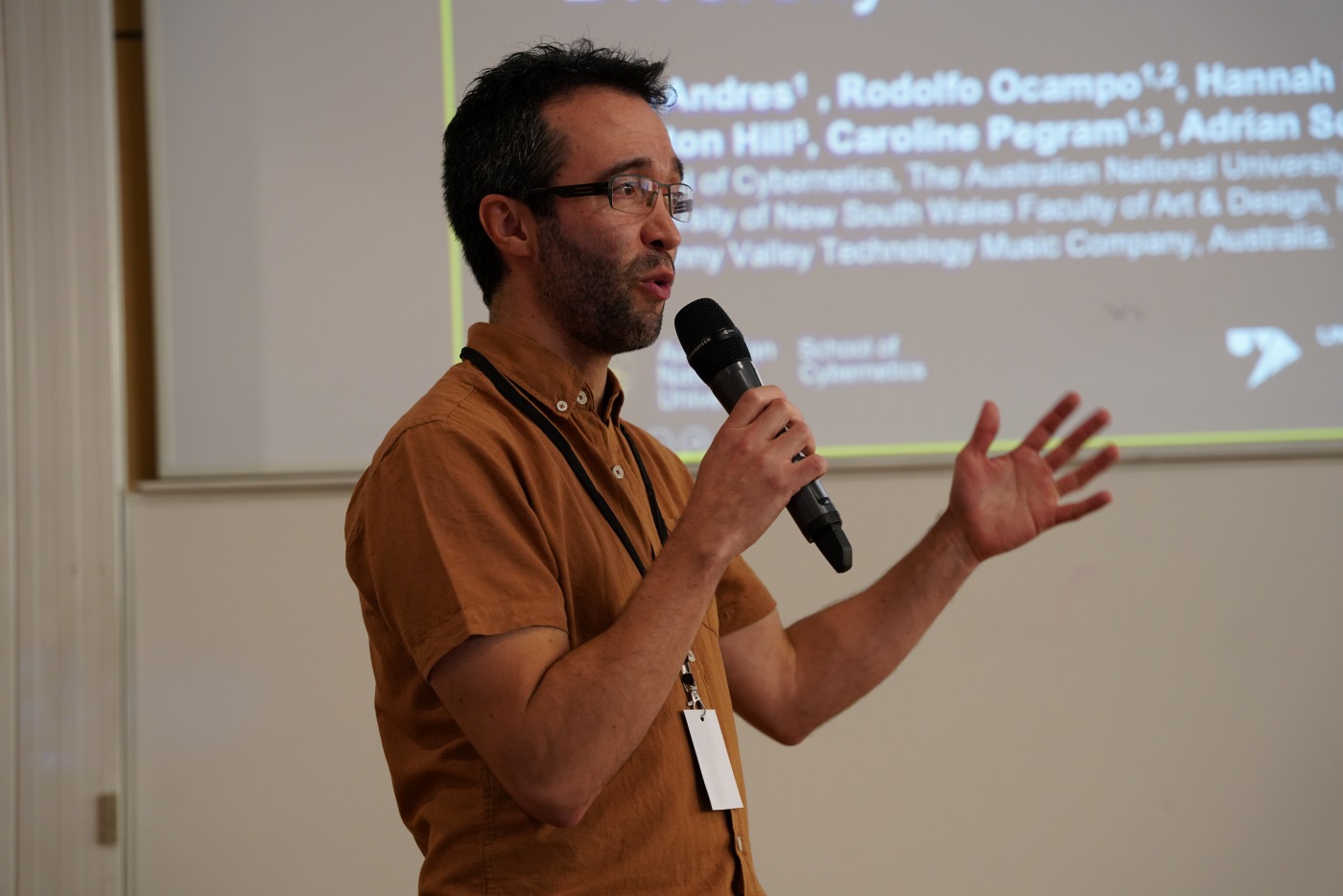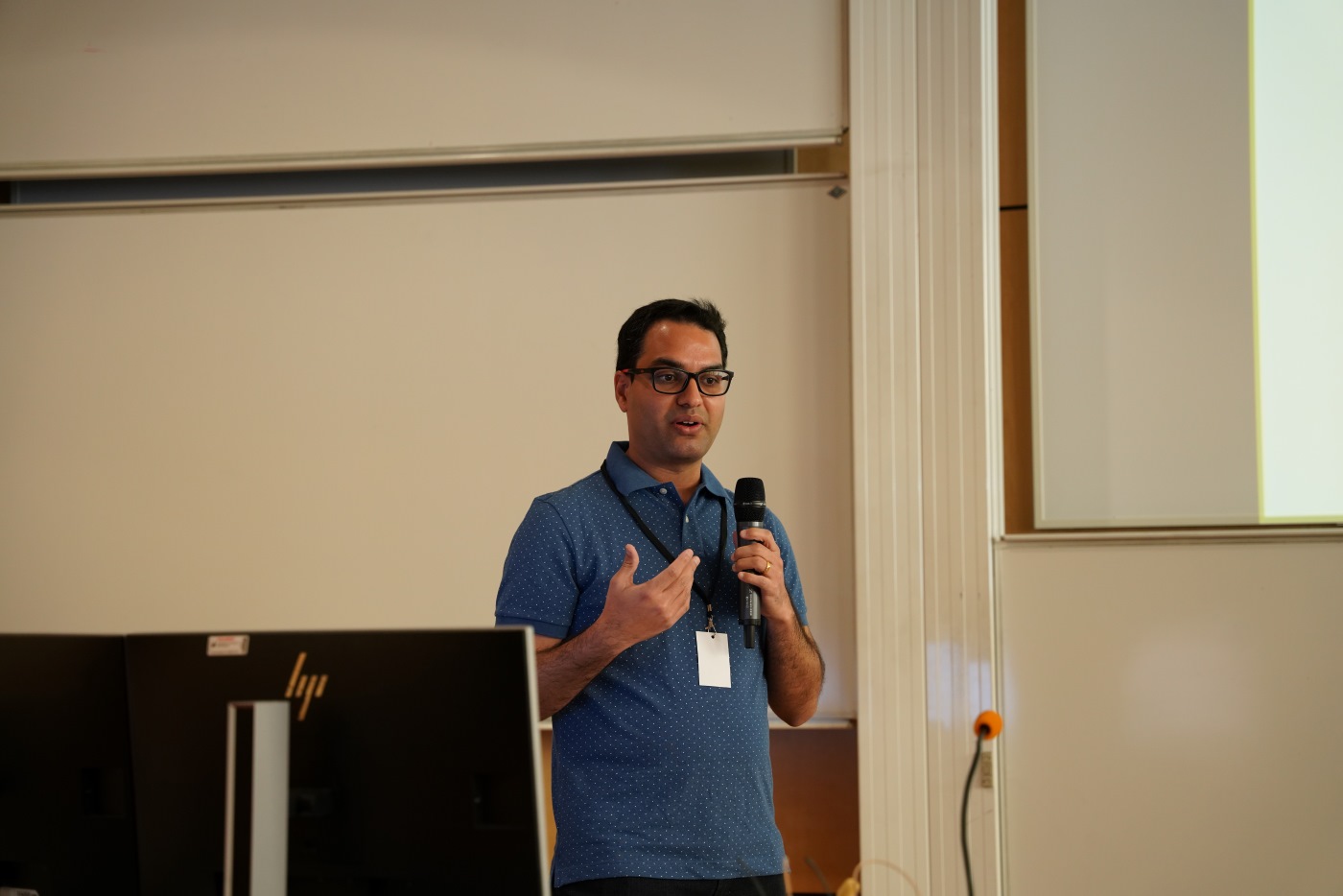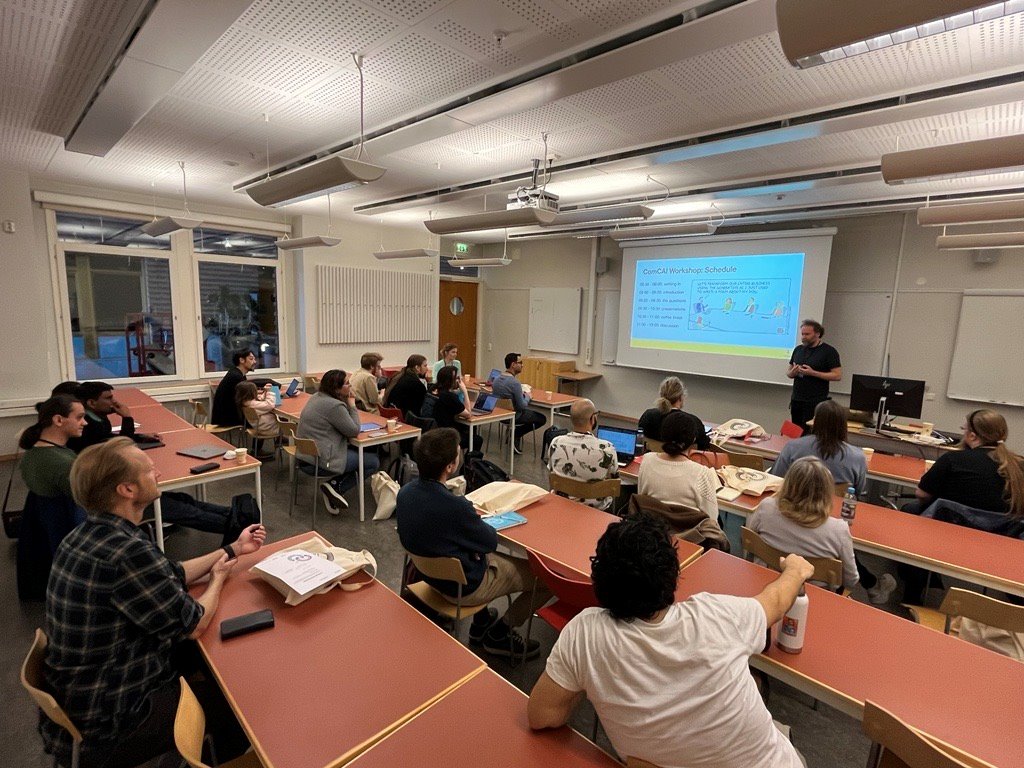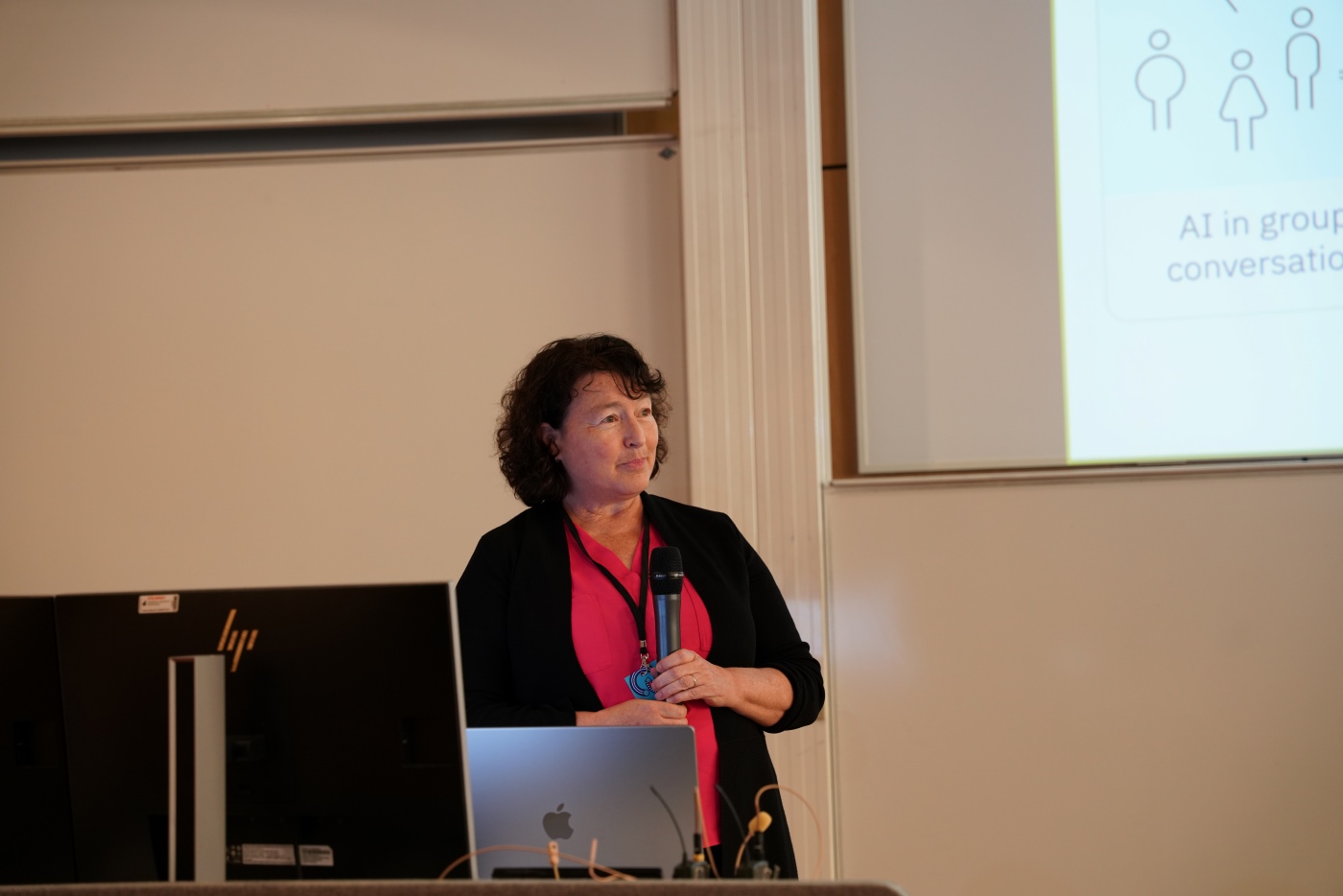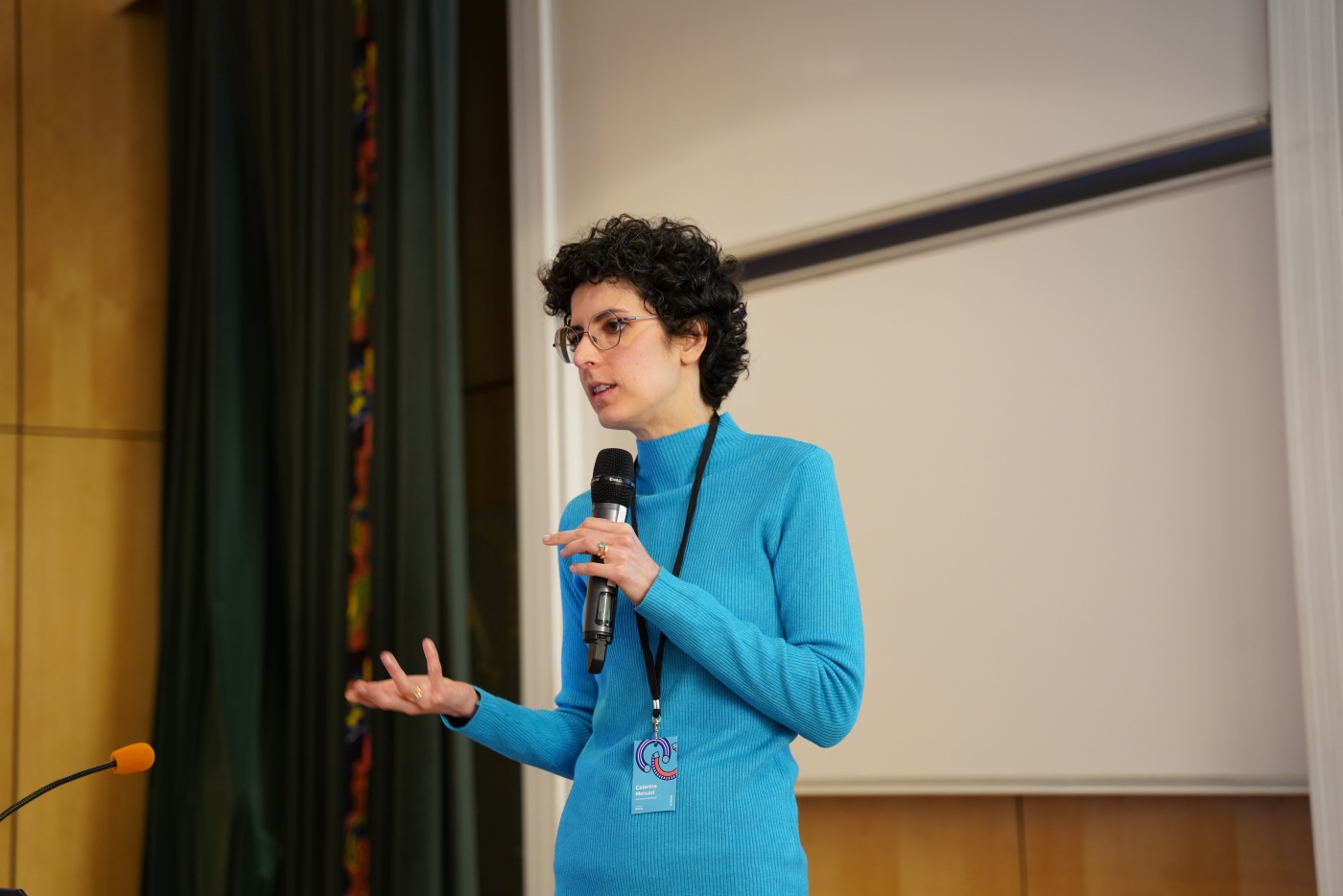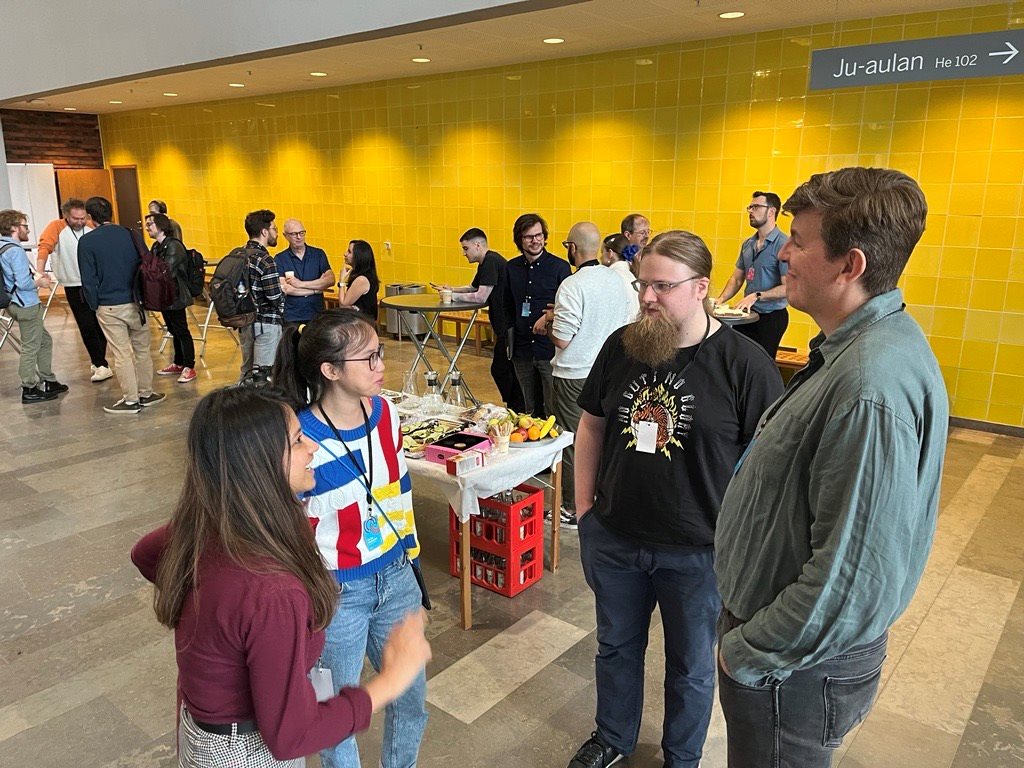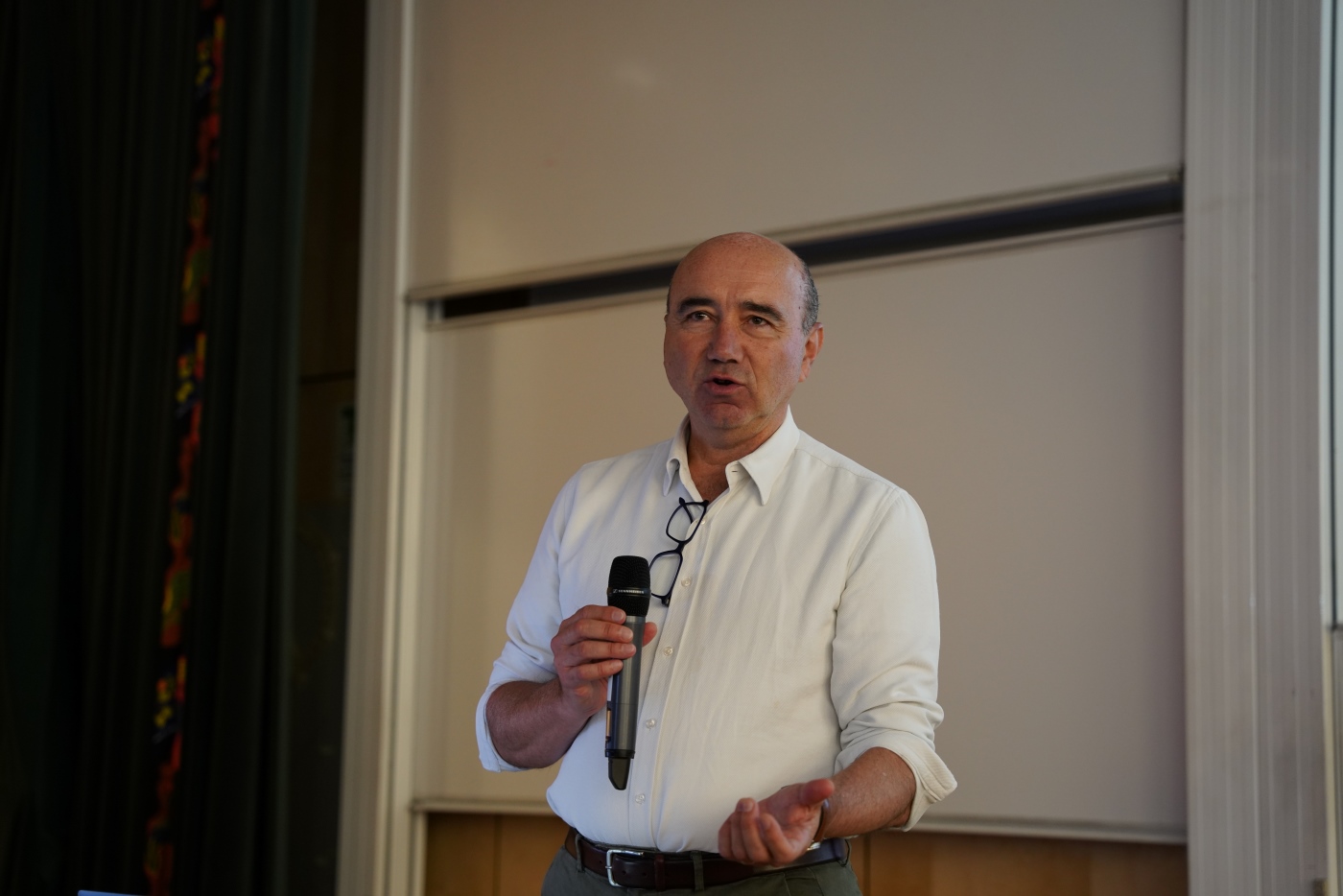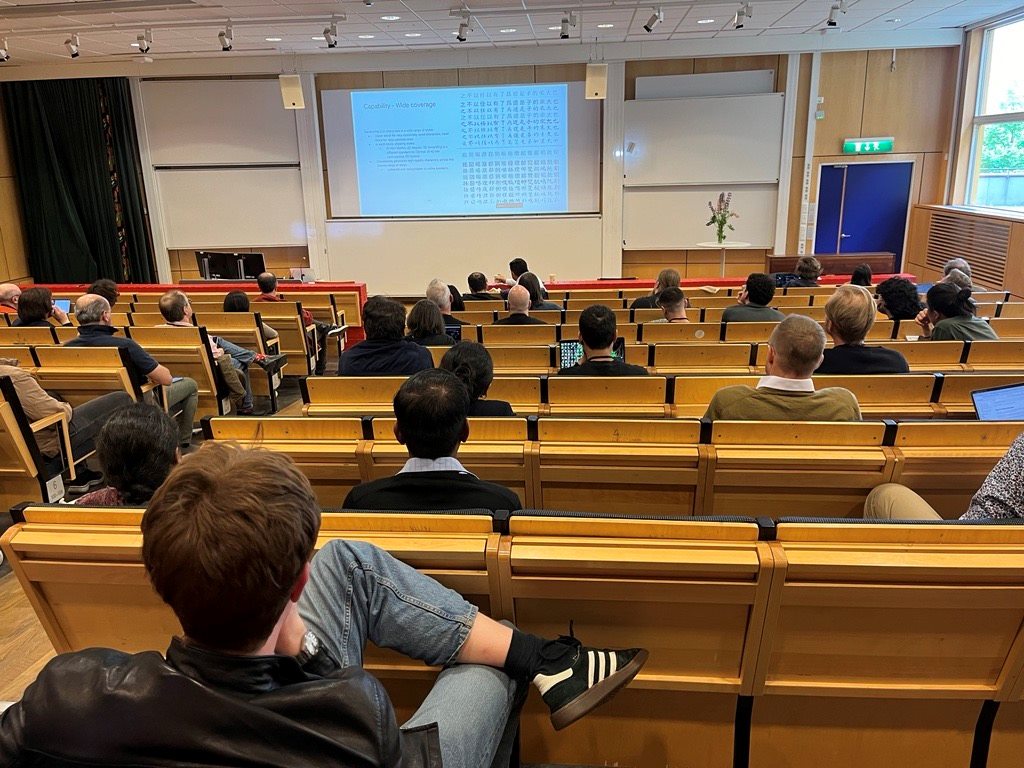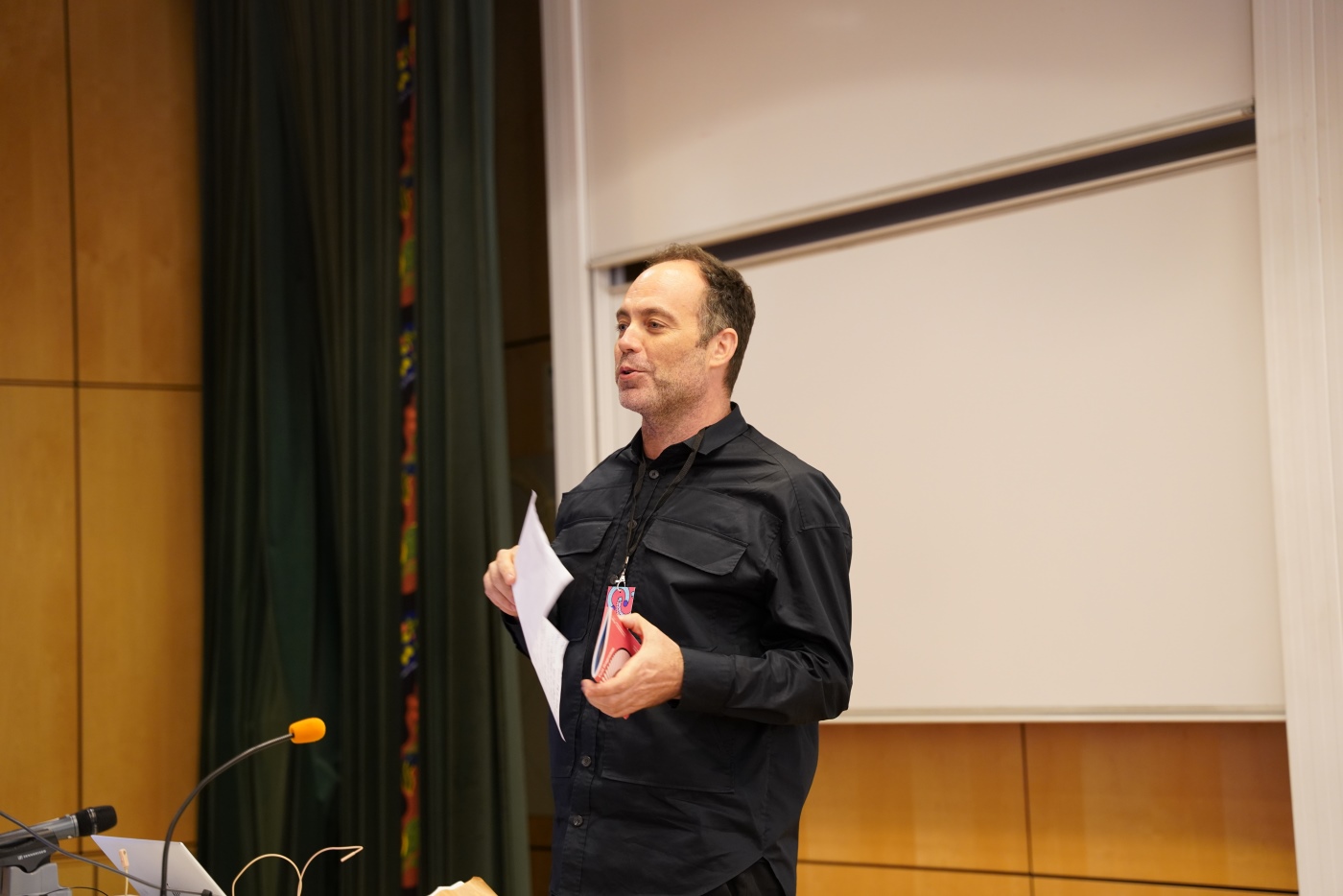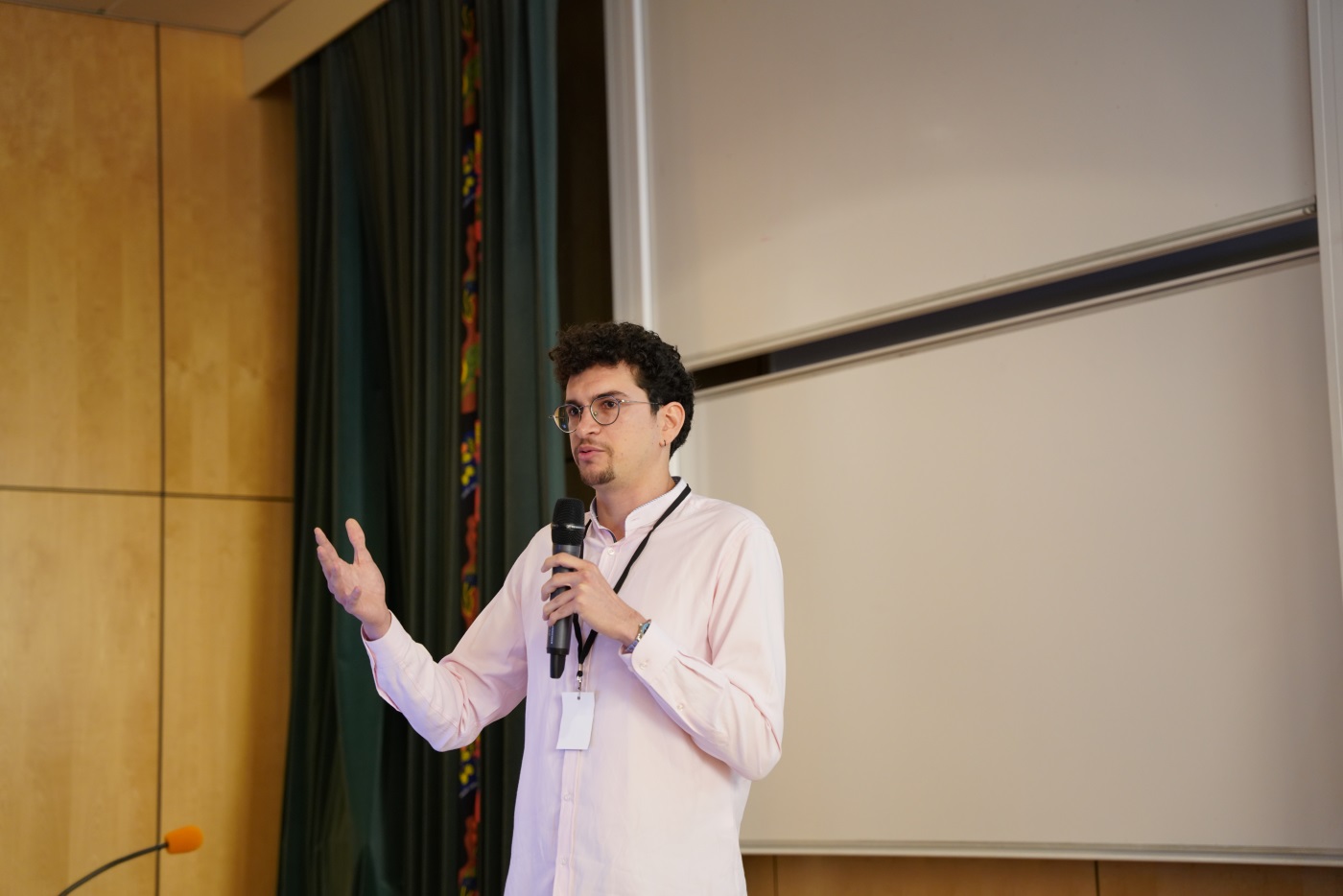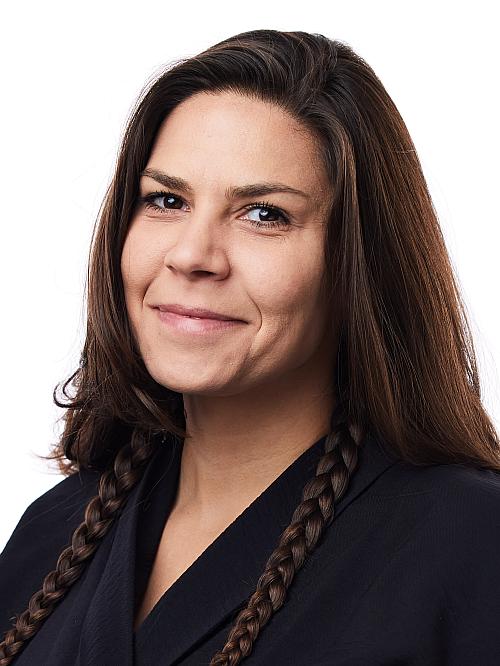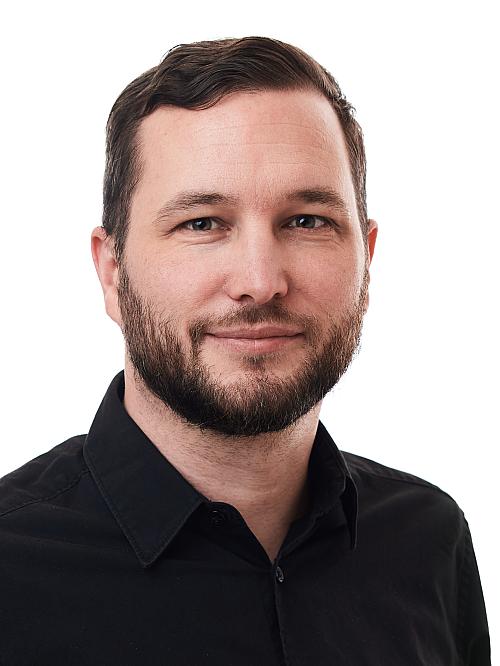
Garrit Schaap and Maria Hedblom, both JTH, were local coordinators of ICCC '24 at JTH and Kazjon Grace from The University of Sydney (to the right) was general chair of the conference. "It is the local team that does the big job at the conference, they do almost everything," says Kazjon Grace.
AI creativity in focus at international conference
Creative AI was in focus at the International Conference on Computational Creativity (ICCC) 2024 which was organized at the School of Engineering (JTH) at Jönköping University (JU) 17-21 June. It was the first time the conference, which attracted around 100 participants, was organized in Sweden.
“It was a fantastic event with lots of art, music and exciting conversations,” says Maria Hedblom, assistant professor in Computer Science at JTH, who was local chair of ICCC -24.

About 100 people attended the conference and among them were long-distance participants from countries such as Australia, Japan and the United States.
Focusing entirely on AI creativity, the ICCC conference brings together researchers interested in exploring technology's ever-increasing capabilities in creative fields such as writing, visual arts, and music.
“Our conference helps to lay the foundation for the research that is conducted in the area and thus has an incredibly large impact on the public. It is easy to get stuck in topics such as generative AI, but there are many ethical and social consequences that the participants at our conference work with. For example, we addressed the problem that generated images can be both anti-Semitic and sexist. At the same time, we have researchers who are interested in how creative AI can be used for teaching and also therapy,” says Maria Hedblom, who arranged the conference together with Garrit Schaap, lecturer at JTH.
Can a computer be creative?
The conference, which was held for the 15th time, brought together researchers from higher education institutions, research institutes and large companies such as Google and IBM. The participants came from all corners of the world and the most long-distance guests came from countries such as Australia, the USA, Canada, Mexico and Japan.
“The question our network has been asking for almost two decades is whether or not a computer can be creative. It is a question and a problem that affects both computer science, AI and theoretical design of algorithms, but also philosophy, psychology and sociology. All these areas were covered during the conference in various forums and presentations,” says Maria Hedblom.
"We wanted to offer them something extra"
She and Garrit Schaap received many positive comments about the event and talked to participants about both exchange programmes and research collaborations. They believe that hosting the conference can have positive effects for JTH and JU as well as Jönköping. ICCC -24 lasted until lunchtime on Midsummer Eve (21 June) and afterwards the participants could celebrate Midsummer in Jönköping’s city park.
“Many people abroad see Midsummer as a somewhat magical and mythical folk festival. When the conference took place during Midsummer week and several of the participants traveled far to come here, we wanted to offer them something extra by showcasing our Midsummer celebration,” says Garrit Schaap.
"Been knocking on this door for a long time now"
Kazjon Grace from the University of Sydney was the General Chair of the ICCC conference. He emphasizes that within the ICCC network they are exploring creative AI to better understand human creativity and to make machines work with humans in creative creation.
“We have been knocking on this door for a long time now and with the explosive development that has taken place with ChatGPT, Midjourney and other text and image generated AI services, it feels like creative AI is finally here,” says Kazjon Grace.
"The AI bubble will burst a little"
He suspects that the widespread AI hype bubble will burst a little in the future.
“AI will always be the next thing, but as soon as something is invented, it is no longer AI but just algorithms. We have reached this point with text and image generated services now,” he says.
He thought that Jönköping was a wonderful city and particularly highlighted the proximity to the lakes. He liked what he saw from JTH and JU and praised Maria Hedblom and Garrit Schaap for a very good conference program. One point that particularly interested him was how to get generative AI to create more diverse content to reach and inspire more users.

The artist Feileacan Kirkbride McCormick, who is part of the artist duo Entangled Others, met many nice people and thought it was lovely to be at ICCC '24.
Right priority?
The artist Feileacan Kirkbride McCormick, who together with Sofia Crespo is the artist duo Entangled Others, was one of the main speakers during the ICCC conference. Their work focuses on ecology, artificial life forms and generative art with an emphasis on giving the new forms presence and life in the digital space. He questioned whether we are prioritizing correctly when AI technology is used to achieve faster and more efficient results for mainly western countries instead of bridging bigger problems and building networks throughout the world. For him, coming to the ICCC conference was a "no brainer" when he was asked.
“Creative thinking is not limited to artistry, and it felt like I fit in very well here among all the researchers and engineers. I have met many nice people during the week, and I appreciate that there is a global participation in the conference with a mix of different backgrounds and experiences,” says Feileacan Kirkbride McCormick.
"A wide and open network"
Lin De Huybrecht, PhD student at Vrije University in Belgium, Surabhi Nath from the Max Planck Institute for Biological Cybernetics in Germany, and Juliana Shihadeh, Santa Clara University in the USA, enjoyed the ICCC conference at JTH.
“I came here to get some feedback on my research on Creative Natural Language Generation and to build on my network of contacts in the field. It has been great here, ICCC is a wide and open network, and I have made new friends and contacts. There have been interesting research talks and good social activities in the evenings, which means that you get to know each other better. I would love to come back for this conference again,” says Lin De Huybrecht.
Read more about ICCC '24 here External link, opens in new window.

Lin De Huybrecht from the Vrije University in Belgium, Surabhi Nath from the Max Planck Institute for Biological Cybernetics in Germany, and Juliana Shihadeh, Santa Clara University in the USA made new friends and gained a wider network at the conference.
- Assistant Professor Computer Science
- School of Engineering
- maria.hedblom@ju.se
- +46 36-10 1204
- Leave of absence
- Lecturer
- School of Engineering
- garrit.schaap@ju.se
- +46 36-550 2409



